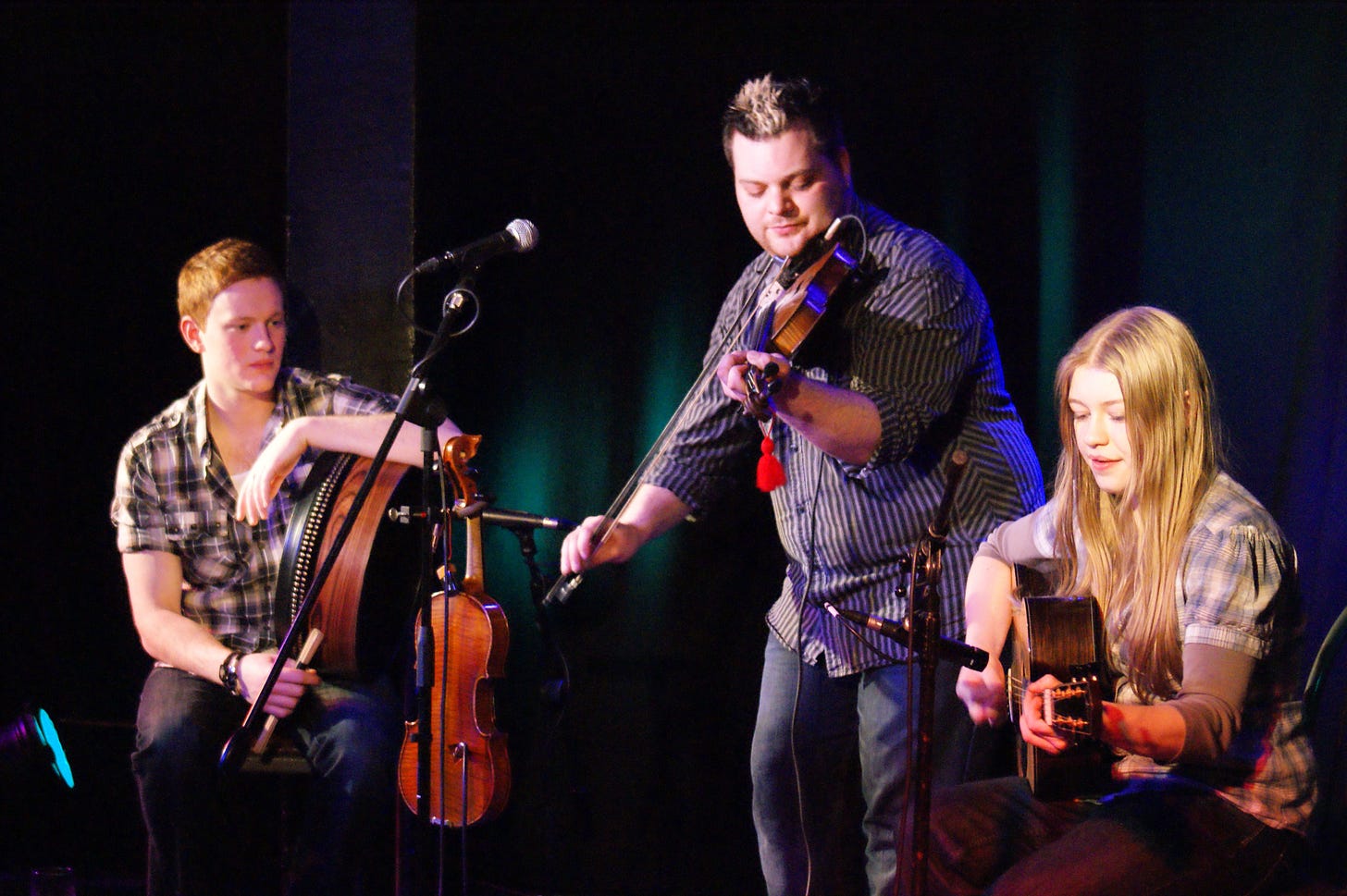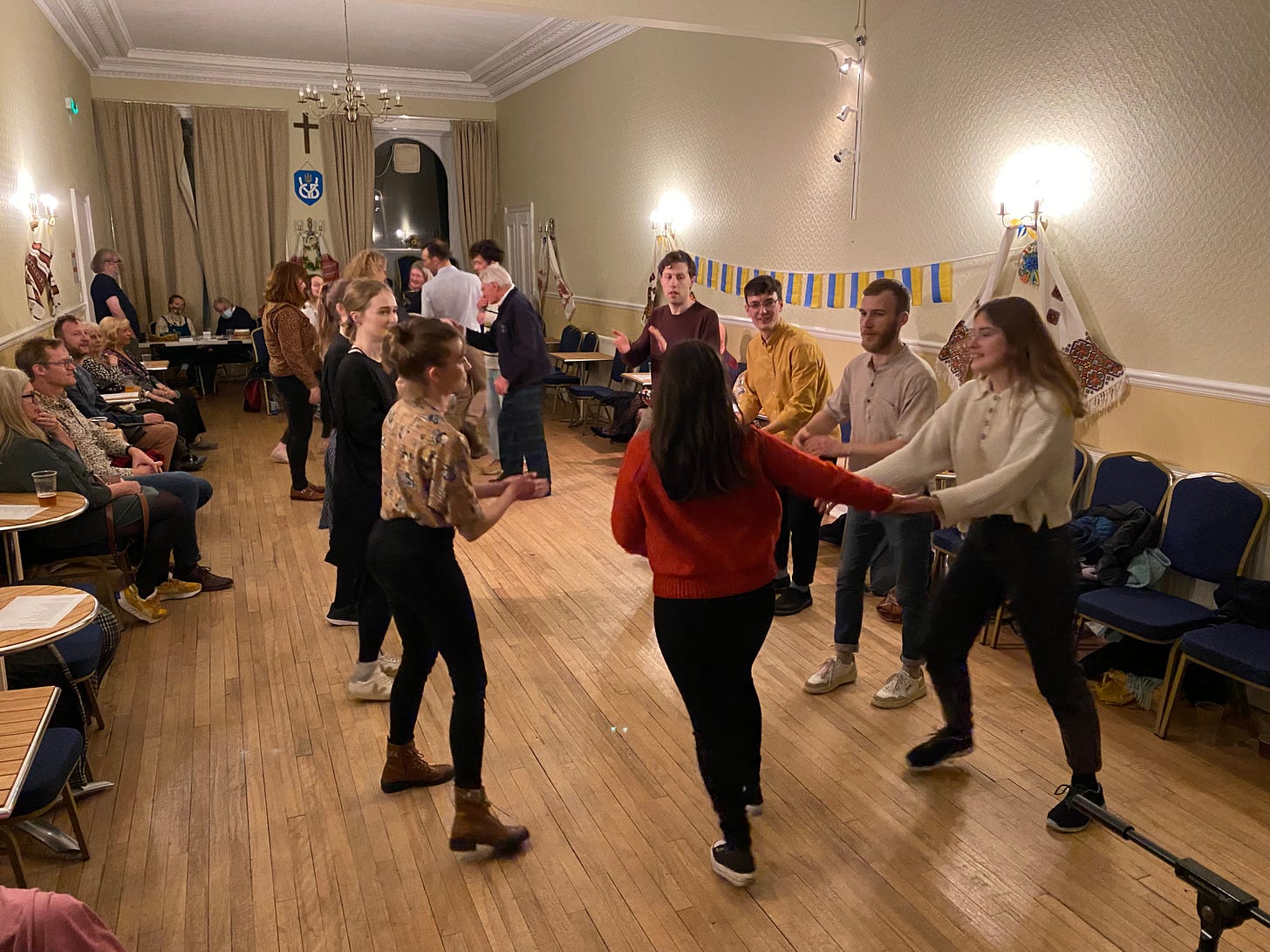Stay tuned: Running a legendary folk club in the Spotify age
Sarah McArthur visits a musical institution fighting for survival on its 50th anniversary
“Tomorrow, songs
Will flow free again, and new voices
Be borne on the carrying stream.”
These are the words of Hamish Henderson, Scottish poet, singer-songwriter and activist; a beautiful image of the way that folk music connects past and future generations. Taking the same melodies, lyrics, or instruments, every generation of folk music meanders through the culture and politics of the time; like a river, it might look and sound almost unrecognisable to previous generations, but the substance remains the same.
In Edinburgh, it’s easy to take our vibrant folk music scene for granted, but the mass of sessions and festivals didn’t happen by accident. Folk clubs, like the internationally-renowned Edinburgh Folk Club (EFC), have played an important role in our city’s “carrying stream”, and, while they are no longer the backbone of the music scene, their contribution remains unique.
Their future, however - even that of the famous EFC in its 50th anniversary year - hangs in the balance as younger audiences tend to look elsewhere for their musical kicks.
When I dropped in to the EFC weekly gathering at its current home at the Ukrainian Community Centre on Royal Terrace, Archie Fisher was the headline act. One of the most revered figures in Scottish folk music over recent decades, Fisher is in his 80s a powerful and moving performer. With an MBE for his contributions to music; he has been releasing a steady stream of albums since 1968, and hosting the Travelling Folk radio show for BBC Scotland for nearly thirty years. But this performance felt no need for frills; I was met at the entrance with a makeshift bar, a cashbox at the door, and the warm murmur of conversation between old friends. To me, this is folk as is should be - understated, casually brilliant - and all about the people (or the folk, even) in the room.
From Sandy Bells to the world
John Barrow, who started the Edinburgh Folk Club with Ian Green and Kenny Thomson in 1973, told me that in the seventies and eighties, folk clubs were “the backbone of the folk scene in general.” Bookings for main acts provided income to professional performers, while spaces for “floor singers” who would perform two or three songs each, gave new artists exposure.
In this golden age, EFC seems to have been at the epicentre of folk initiatives in Scotland’s capital. Despite being a journalist, a policeman and a physics teacher by day, the club’s founders started many key folk initiatives at the time. The Sandy Bells Broadsheet, a newspaper about folk music in Scotland, became an international success. “We sent copies to Bermuda,” he said, “because there were Scottish guys running a folk club there… where there was a Scottish person, there was a good chance they’d be getting the Sandy Bells Broadsheet.” Barrow also went on to manage the Edinburgh Folk Festival in the late seventies and early eighties, which was the largest folk festival in Europe at the time. The Acoustic Music Centre, run originally by EFC and also now based in the Ukrainian Community Centre, is still a Fringe venue to this day.
Ian Green, who sadly passed away this month, ran the Edinburgh and Lothians police folk club, and started the record label Greentrax. Barrow told me that few believed Green would be able to establish his own record label, but that in the end it was a huge support to producing Scottish folk music. Greentrax produced around 500 titles during its time, almost all of which were Scottish folk musicians.
Tribute was paid to Green at the beginning of the folk club meeting; “We lost this week one of the great figures of Scottish folk music,” said the host. “An incredible man, working almost right up to the very end.” In the weeks following his passing, a myriad of tributes have been paid by musicians, producers and friends. BBC Radio Scotland’s Travelling Folk programme released an episode dedicated to him, stating that “few have done more than Ian Green to cultivate the fruition of Scottish folk music over the last four decades.”
‘The audience listens to you…’
Fifty years since EFC opened its doors, times have changed, and the way that we share information and listen to music is nothing like it was in 1973. But folk clubs still provide a unique experience for players and listeners alike.
Barrow expressed a clear desire for the Folk Club to serve as a support to folk music as a professional career, not just a hobby. He says the club has always done its best to pay performers decent and guaranteed rates. While he was disappointed when in recent years the club was forced to start paying percentage rates due to financial constraints, funding from Creative Scotland this year has allowed them to return to payment which aligns with their values. During the Covid-19 lockdowns, the club published video music recordings every fortnight and invited donations for a fund to help struggling performers. The fund gave out nearly £20,000 in assistance to musicians during the pandemic; “we were really proud of that,” says Barrow.
Folk clubs also provide a unique audience-performer interaction. I’ve been to a few pub folk sessions in Edinburgh, and I have a lot of respect for the staff at Captain’s Bar who will periodically shush the throng packed into the tiny bar. But even the most attentive pub audience is not the same as the folk club listeners - as one guest on Wednesday noted, “the difference between this and a pub is that audiences listen to you… you’re not fighting against folks chatting and noise at the bar.” This said, contrary to a formal gig or concert, the fact that audience and performer at EFC are packed into the same small room, without a raised stage, makes for a much more intimate performance. This clearly makes for a different experience of performing and listening, the audience on Wednesday were attentive and confident enough to even learn the choruses to new songs and sing along when invited.
For audiences, EFC provides intimate gigs with favourite artists, and exposure to new high quality music. Now that the tradition of “floor singers” has fallen away as many new musicians go instead to folk sessions in pubs, Edinburgh Folk Club focuses on providing a guaranteed good show. Having received funding from Creative Scotland for its 50th year of operation, EFC has what organisers and members described to me as “one of the best programmes of events that any folk club could have given the financial constraints.” One guest at the EFC meeting I spoke to had come specifically to see Archie Fisher, as she had become a fan while growing up in Australia, and said she couldn’t miss an opportunity to see him live. A regular member spoke about how weekly attendees could come every week and see music they might never have heard of otherwise.
An uncertain future
Edinburgh Folk Club has its struggles; without this year’s funding from EFC, Barrow fears the club might have already shut its doors. And while the current committee plans to step down in September, there are only three younger members to take on leadership of the club afterwards. But the biggest unresolved problem for the club is the audience; while I thoroughly enjoyed Wednesday evening, there was a definite generational difference between me and the vast majority of the audience. The success of other venues would suggest younger generations appreciate the value of live music - so why aren’t young people going to folk clubs?
None of the people I spoke to had an answer for this. There are many young folk artists around performers, but not the young audience to accompany them. Some thought it was because folk performers no longer need to pass through folk clubs to get their training - they now train in formal conservatoires and music schools. Others blamed the digital age. Personally, I think it might simply be an issue of communication - I’m not sure how many people my age know of the existence of folk clubs. And that’s a great shame, because the values of folk clubs align very much with what young people are calling for; decent pay for artists, small, stripped-back and informal performances, and exposure to new music which doesn’t rely on some online bot suggesting music to you on Spotify.
“Over the years there have been lots of prophecies about what’s going to happen to folk clubs,” Archie Fisher told me, with almost sixty years of experience behind him, “and they’ve never come true… it's an undulating thing.” I too am reasonably optimistic that folk clubs will continue to be a part of Edinburgh’s carrying stream of folk. They might start looking a little different, but the appetite for the musical experience that folk clubs provide still exists. It will be up to EFC’s new committee to bridge the generational gap in Edinburgh’s folk scene and tap into that appetite.
Edinburgh Folk Club is celebrating its 50th anniversary with a vibrant programme of performances by some of the country’s most outstanding emerging talents and established names. The 38 gigs and events, made possible by Creative Scotland funding, include upcoming performances by acclaimed singer-songwriter Boo Hewerdine and Scottish-Danish duo The Quiggs. Since opening in September 1773 in the basement of the Chaplaincy Centre in George Square, EFC has staged more than 2000 gigs to a total audience of more than 100,000. It also stages an annual songwriting competition, established in 1976, and runs the Paddy Bort Fund, which offers financial assistance to folk musicians living in Scotland and experiencing financial hardship.
Edinburgh Folk Club meets most Wednesday at 8pm, between October and June, at the Ukrainian Community Centre, 14 Royal Terrace. Tickets are generally available in advance or on the door. All welcome.
If you enjoyed this feature, you might also like Sarah’s long read on Loud Poets and the renaissance of performance poetry in Edinburgh, which our paid subscribers originally enjoyed on Burns Night.
Eat your heart out, Rabbie Burns. There are new stars in town.
From 'slams' to cellar bar recitals, meet the performers making poetry cool again in Edinburgh
Tonight, Edinburgh will be positively reeking of haggis, and ringing with hearty cries of “Fair fa’ your honest, sonsie face…!” Even the most tim’rous of us can be found spouting rhymes as we celebrate our National Bard on Burns night.
But for the other 11 months of the year, it seems poetry is the reserve of the few literary buffs who, against all the odds, survived high school English classes without an enduring hatred for similes and sibilance and stanzas (remind me which one is which?). I was surprised to find that, nearly 250 years after Rabbie himself lived in Edinburgh, the city continues to inspire poetry - but nothing like the kind we were forced to study in school.
Amused then enraged
In December I went to the Loud Poets open-mic night in the Canon’s Gait, put on fortnightly by I Am Loud Productions. “I’m here for the um.. poetry?” I asked awkwardly at the bar, and was directed downstairs to a small cellar room reminiscent of a Fringe venue. Folding chairs were squeezed into rows, with a single microphone on a tiny stage in the corner. My only prior experience of poetry was sweating over higher English essays about war poems, or the yearly terror of primary school Burns recitals. So as the host strode to the front of the room I had no idea what to expect.
Not yet a paid subscriber? Sign up now or take a free 7-day trial to read the full feature.







